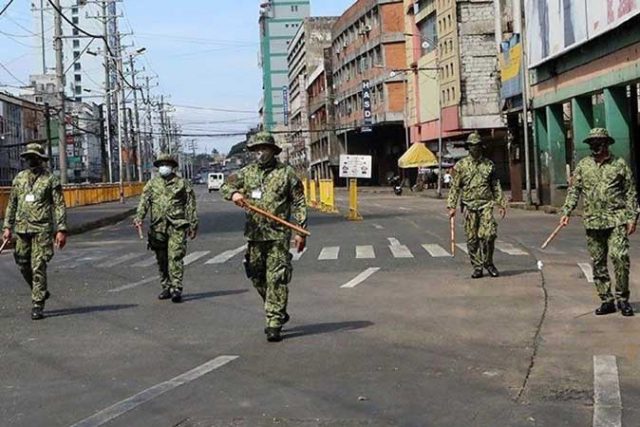DoF pushing for localized lockdowns, unhampered logistics

THE GOVERNMENT needs to limit lockdowns to defined high-risk areas only and ensure smooth delivery of goods and services to minimize the impact on the economy, the Department of Finance (DoF) said.
“Like fiscal incentives that should be time-bound and targeted, strict quarantine measures, if and when they are called for, should be localized and time-bound while not unnecessarily hampering the transportation of goods and delivery of services so as to minimize the collateral damage on the economy and, consequently, employment,” the DoF said in an economic bulletin Sunday.
The number of unemployed rose to 4.2 million in February from 3.95 million in January, the Philippine Statistics Authority reported, bringing the jobless rate to 8.8% that month from 8.7% in the month prior.
Underemployment, which measures the number of workers still seeking more work, also rose to 18.2% in February from 16% previously.
Economic managers attributed the high underemployment rate to ongoing quarantine measures, which are reducing incomes.
The strictest lockdown setting was reimposed in Metro Manila, Bulacan, Cavite, Laguna and Rizal, and were due to end on April 11 after daily coronavirus cases hit new records. Malacañang had yet to announce new quarantine measures at deadline time.
On Saturday, the Health department reported 12,674 new infections to bring the total count to 853,209 so far. Deaths overall hit 14,744 after 225 new deaths were recorded that day.
Economic managers have been pushing for localized lockdowns to curb the high infection rate and allow areas with relatively few infections to operate normally.
The DoF said pharmaceutical and other non-medical interventions should be “managed effectively” to contain the outbreak that started more than a year ago, so the government will not be “forced to take the difficult and painful decision of imposing much stricter quarantine measures.”
“The timely passage of CREATE is a welcome development not only in improving the country’s long-term competitiveness but also in providing immediate relief and support for enterprises, the important players in providing employment opportunities to a large portion of the population,” the DoF added.
Republic Act No. 11534 or the Corporate Recovery and Tax Incentives for Enterprises (CREATE) Act was signed into law on March 26 and is set to take effect on Monday, April 12.
The law reduces the corporate income tax for small businesses to 20% from 30%, while the rates for all other companies will be lowered gradually until they hit 20% in 2027. It also reforms the tax incentive system to make it more time-bound and performance-based.
The Bureau of Internal Revenue on Friday released the implementing rules and regulations covering the tax provisions under CREATE. — Beatrice M. Laforga
